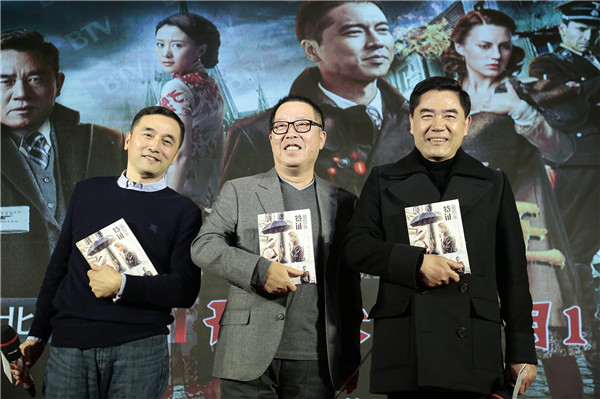Wartime drama spotlights Chinese hero of the Holocaust
 |
|
Director Hua Jing (left), scriptwriter Gao Mantang (center) and actor Chen Baoguo at a promotional event in Beijing. [Photo provided to China Daily] |
To develop the tale of The Last Visa, Gao toured Europe three times and visited World War II sites, including concentration camps, museums and memorial halls.
"For me, the records on computers are cold and emotionless. It is only when I saw the sites, which once held tens of thousands of Jews, and their cemeteries, that I felt I was connected to the story," he recalls.
As many wartime buildings were damaged in Austria, the crew shot most of the scenes in what is now the Czech Republic, which makes the series the largest-ever Chinese-Czech production in history.
Up to 250 crew members from both countries worked on the filming in the Czech Republic, and more than 10,000 extras from the Czech Republic, Poland, Austria and the United Kingdom were used. To resolve the language problem, the crew hired 35 translators.
Gao recalls that, with the support of the local government, the Czechs once closed a railway station and several blocks for the shooting, and let them use an 1890 library as a film set.
As records related to Ho were limited, Gao dramatizes the tale. The television version centers on a young visa official and his mentor-like superior, the vice-consul general of the Chinese consulate in Vienna.
In the series, after witnessing Nazi atrocities, the duo team up with other Chinese diplomats to work to save Jews.
The official is played by rising actor Wang Lei, while award-winning veteran Chen Baoguo plays the superior.
The series will be also broadcast in such markets as Germany, the Czech Republic, Italy, Austria, Switzerland and Israel, says the producer, Zhu Kai.
Zhu says the series will be re-edited to a condensed, 12-episode version that will be broadcast abroad.
He says they plan to invite Steven Spielberg-the director of the 1993 epic Schindler's List-to be that version's art consultant.




















